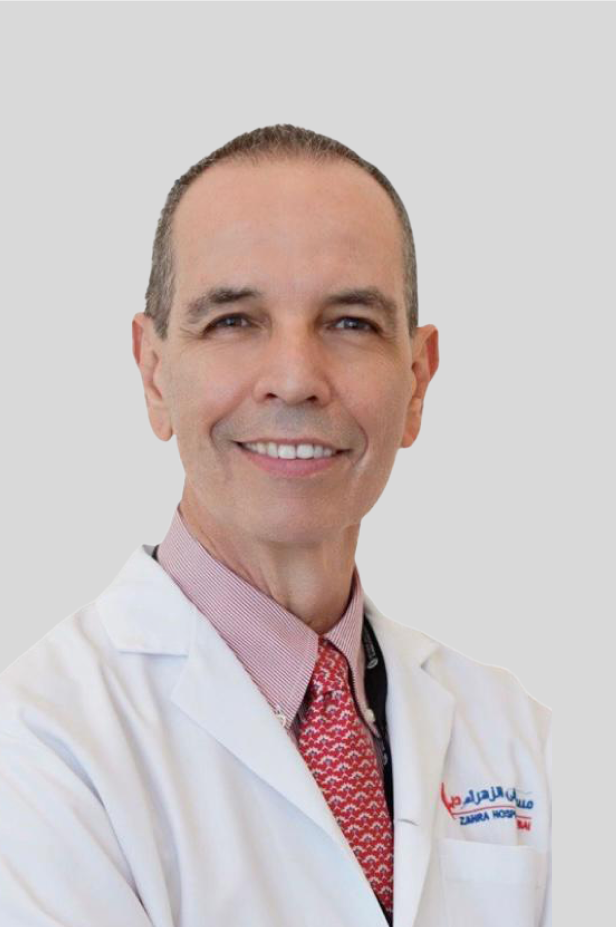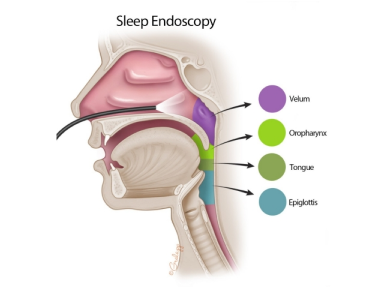
How a Deviated Septum Impacts Your Breathing
How a Deviated Septum Impacts Your Breathing Imagine breathing through a pinched straw – that’s often the life of someone with a deviated septum! Nearly

Dr. Peter Baptista Jardin is an best ENT Surgeon in Dubai with a special interest in treating sleep apnea. He is a revered expert in Spain for performing the first ever robotic transoral surgery in 2011, and the only series of hypoglossal nerve stimulation which proved revolutionary for obstructive sleep apnea treatment worldwide. He currently serves as the Best ENT doctor in Dubai’s Al Zahra Hospital.
Dr Peter,Best ENT Surgeon in Dubai uses improvised techniques for treating the various ailments of the ears, nose and throat. All these parts play a crucial role in our sleep cycle, and hence require a holistic, specialized treatment approach to ensure better sleep. Dr. Peter has published a myriad of researches in this very field and is also a reputed teacher of various student courses on sleep apnea in Spain.
He was named an “Expert in Sleep Medicine” by the European Sleep Research Society. He also holds credit for performing the first successful head and neck surgery with the Robotic Da Vinci Surgical system in Spain.


Sleep Specialist by The European Sleep Research Society
Sleep apnea is a potentially serious sleep disorder in which breathing repeatedly stops and starts. If you snore loudly and feel tired even after a full night’s sleep, you might have sleep apnea.
This occurs when the muscles in the back of your throat relax. When the muscles relax, your airway narrows or closes as you breathe in. You can’t get enough air, which can lower the oxygen level in your blood. Your brain senses your inability to breathe and briefly rouses you from sleep so that you can reopen your airway. This awakening is usually so brief that you don’t remember it.
You might snort, choke or gasp. This pattern can repeat itself five to 30 times or more each hour, all night, impairing your ability to reach the deep, restful phases of sleep.
For mild cases of sleep apnea, Dr. Peter, Best ENT Doctor in Dubai recommends only conventional treatments with lifestyle changes, such as losing weight or quitting smoking. If these measures don’t improve your signs and symptoms or if your apnea is moderate to severe, Dr. Peter, Best ENT Surgeon in Dubai can help you with several other treatments including:




ENT surgeons in Dubai treat a wide variety of conditions, including ear infections, hearing loss, sinusitis, tonsillitis, sleep apnea, allergies, vocal cord disorders, and more.
Sinus surgery becomes necessary when complications arising from sinusitis arise. If inflammation persists for over three months, the condition is termed chronic sinusitis. In such cases, Dr. Peter Baptista, the best ENT doctor in Dubai, might recommend sinus surgery after a thorough evaluation. However, not all instances of sinusitis demand surgical intervention; severity guides the necessity of surgery.
Sinus surgery becomes necessary when complications arising from sinusitis arise. If inflammation persists for over three months, the condition is termed chronic sinusitis. In such cases, Dr. Peter Baptista, the best ENT Surgeon in Dubai, might recommend sinus surgery after a thorough evaluation. However, not all instances of sinusitis demand surgical intervention; severity guides the necessity of surgery.
ENT surgeries, including those performed by the renowned Best ENT surgeon in Dubai, Dr. Peter Baptista, may have both direct and indirect effects on the voice. Procedures such as sinusitis treatment, thyroid surgery, and cervical spine surgery might impact the voice. It’s crucial to consider potential voice-related side effects before undergoing any surgical intervention to ensure the best outcomes.
Surgical intervention for a deviated septum is recommended when conventional medical therapy fails to alleviate nasal congestion. Dr. Peter Baptista the best ENT Surgeon in Dubai advises a holistic approach, including over-the-counter and prescription allergy medications. Surgical correction is only considered when breathing difficulties persist despite medical treatments, ensuring personalized care from the best ENT doctor in Dubai.
Generally, septoplasty’s primary purpose is to enhance nasal breathing, not to cure snoring or sleep apnea. While improved breathing might lead to better tolerance of CPAP or dental devices, comprehensive solutions for snoring or sleep apnea would require a broader approach under the expertise of Dr. Peter Baptista, the distinguished ENT surgeon in Dubai.
Septoplasty and rhinoplasty are distinct procedures. Rhinoplasty addresses the external nose for structural or cosmetic reasons, while septoplasty focuses on internal deviations affecting nasal breathing. Often performed together, these procedures receive meticulous attention from Dr Peter Baptista, ensuring optimal results as the leading ENT surgeon in Dubai.
Patients with significant obstructive sleep apnea unresponsive to medical treatment might consider Palatopharyngoplasty. This surgical intervention, performed by Dr Peter Baptista, the Best ENT doctor in Dubai, involves removing excess soft tissue from the mouth’s roof to treat snoring and sleep apnea effectively, providing relief when other options prove inadequate.
Enlarged turbinates manifest through constant nasal congestion, difficulty breathing through the nose, snoring, nosebleeds, and recurring sinus infections. Under the expertise of Dr. Peter Baptista, the renowned ENT surgeon in Dubai, these symptoms can be effectively managed through specialised surgical procedures.
Dr Peter Baptista, the best ENT surgeon in Dubai, offers endoscopic sinus surgery to address various nasal conditions, such as chronic sinusitis, nasal polyps, recurrent sinus infections, nasal and sinus tumors, sinus mucoceles, nasal obstruction, allergic fungal sinusitis, and odontogenic sinusitis. This advanced procedure provides tailored solutions to diverse nasal issues, ensuring patient well-being and optimal outcomes.
We proudly announce the launch of 2 books on Obstructive Sleep Apnea written and published by Dr. Peter M. Baptista, the ENT Specialist in Dubai.
The first book is titled as
Obstructive Sleep Apnea ~ A Multidisciplinary Approach
This book is written for Physicians to represent the implications of OSA in different medical specialities, and it includes clinical case reviews.
The second book is – A Patient’s Guide to obstructive Sleep Apnea Syndrome
This well-researched book has an engaging content with clear diagrams to enhance the reader’s understanding of pathophysiology and treatment.



How a Deviated Septum Impacts Your Breathing Imagine breathing through a pinched straw – that’s often the life of someone with a deviated septum! Nearly

What are tonsil stones? Causes, symptoms, and treatments While many people are familiar with common throat issues like strep throat or tonsillitis, there is a

Can Ear Wax Cause Tinnitus? Have you ever experienced a sudden ringing in your ears that just won’t quit! You’re not alone—millions deal with tinnitus
